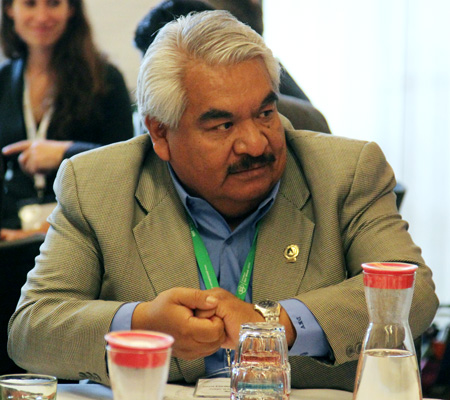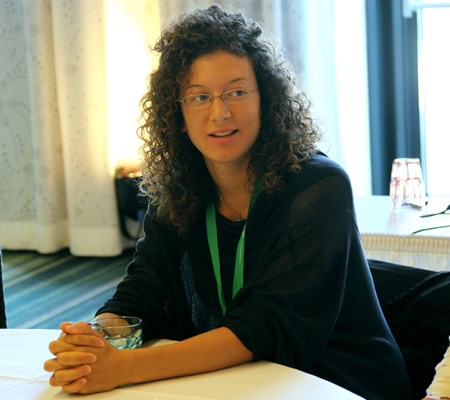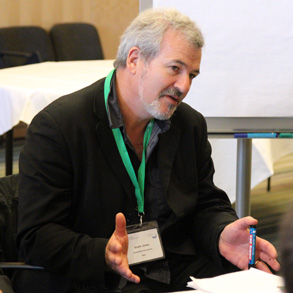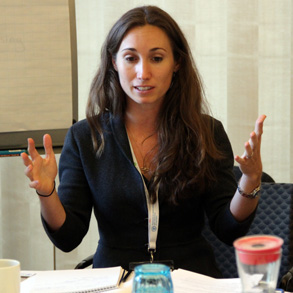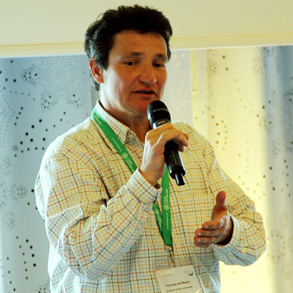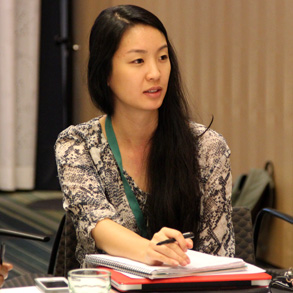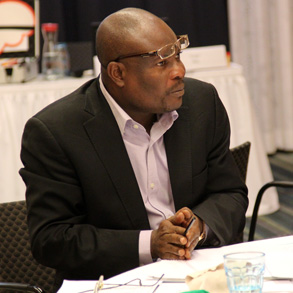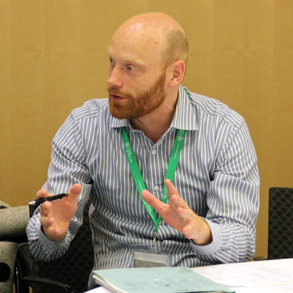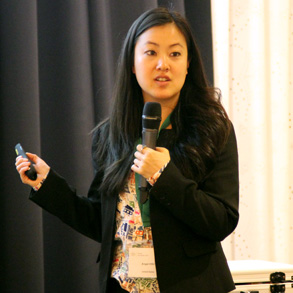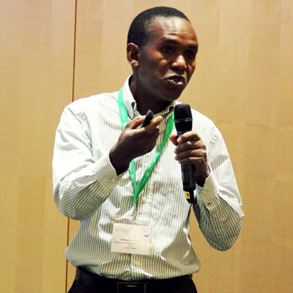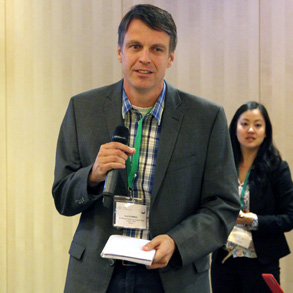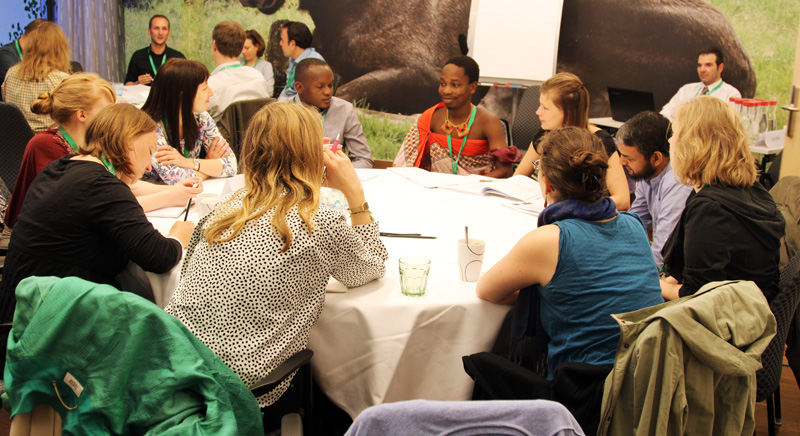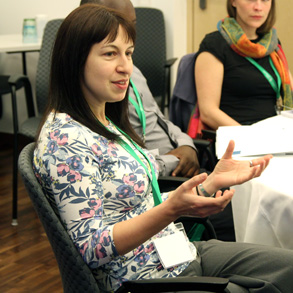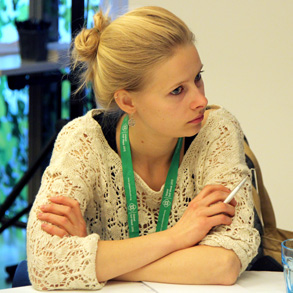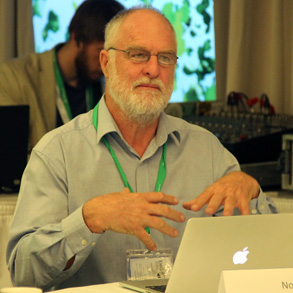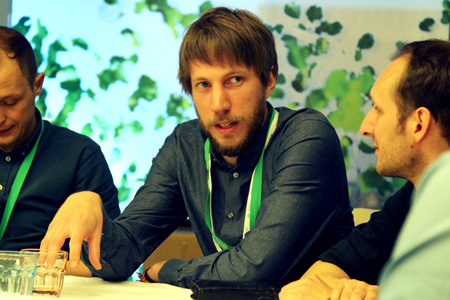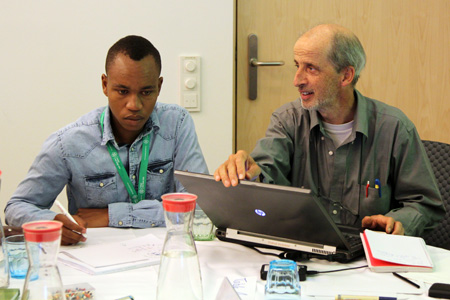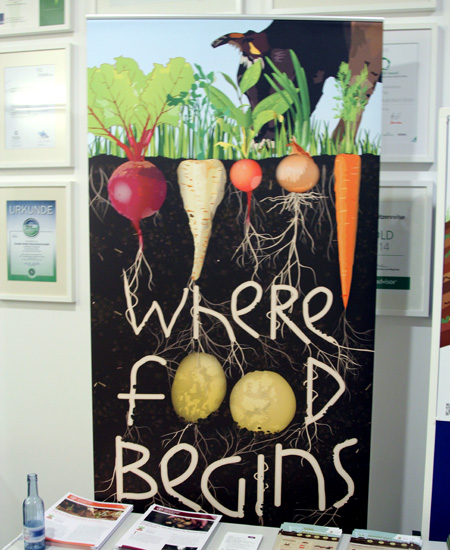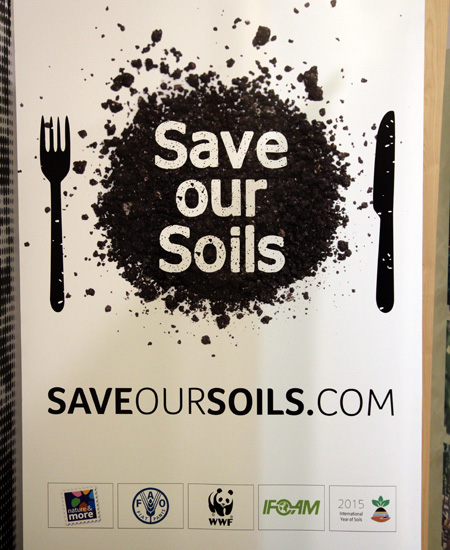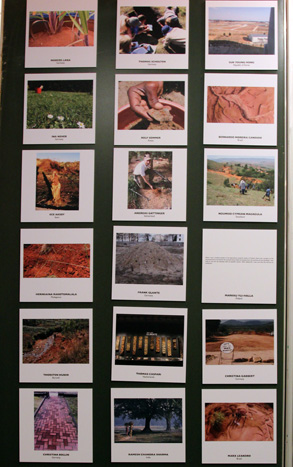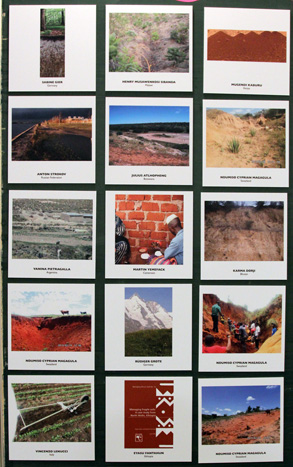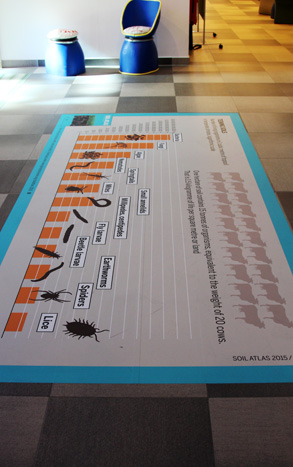Third Global Soil Week (GSW) 2015 - “Soil. The Substance of Transformation”
19-23 April 2015 | Berlin, Germany
Highlights for Thursday, 23 April 2015
ENB Meeting Coverage |
||||||
Receive our ENB bulletins and reports by email: |
||||||

| Follow @IISDRS | ||

Loading... |
||
|
Receive emailed updates with the news articles above plus related information and announcements from our LAND-L community mailing list: |
||
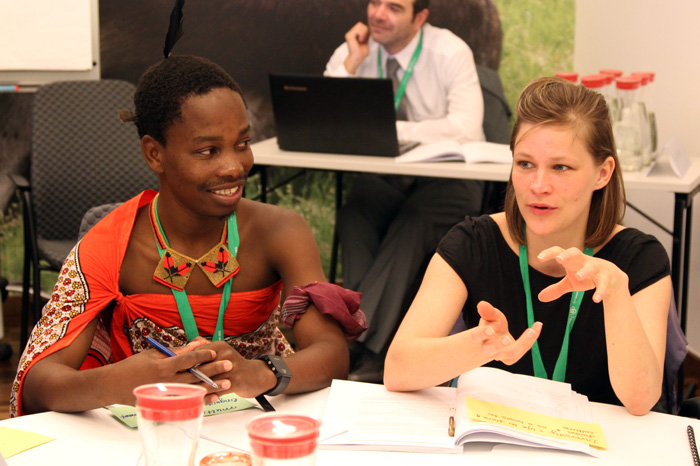
Ndumiso Cyprian Magagula, University of Swaziland and Kora Rösler, FU Berlin/ TU Berlin |
||
|
IISD Reporting Services, through its ENB+ Meeting Coverage, has produced a summary report of the “Global Soil Week 2015: Soil. The Substance of Transformation.” in HTML and PDF format. |
||
|
During the last day of Global Soil Conference 2015, participants attended a series of Open Space Format Sessions to deepen discussion on issues that emerged during the previous days. | ||
Open Space Format Session: Giving living soil a voice: approaches and tools
|
|
|
|
|
Open Space Format Session: Soil quality and agricultural sustainability indicators for the environmental performance index
|
|
|
|
|
|
Open Space Format Session: Sprouting new ideas, rooted in old wisdom: intergenerational dialogue on sustainable land management
|
|
|
|
|
|
Around the venue
|
|
|
|
|




